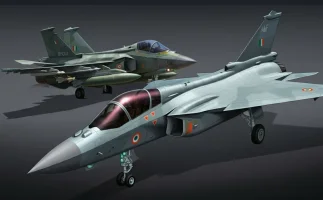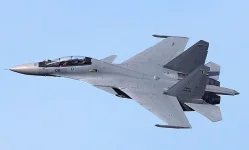
New Delhi - The Indian Ministry of Defence is considering a proposal to establish a National Aerospace Testing Establishment (NATE) to centralize and streamline the testing and evaluation of military aircraft, helicopters, drones, and airborne weapons.
This move aims to enhance efficiency, reduce delays in project timelines, and foster greater collaboration between the armed forces, research organizations like the DRDO, defense public sector undertakings (PSUs) like HAL, and the burgeoning private sector.
Currently, the flight-testing process in India involves multiple organizations conducting separate ground and airborne trials, often leading to time-consuming procedures. NATE seeks to consolidate these efforts under a single entity, providing a "synergistic approach" that will expedite prototype development and benefit all stakeholders in the military aviation sector.
As a single-window agency, NATE will engage with private industry from the initial design stage through to product certification, making the process more cost-effective and accessible for private companies, micro, small, and medium enterprises (MSMEs), and start-ups. NATE will also offer crucial support in the form of pre-design assessments and feasibility studies based on the specific requirements of the armed forces, further reducing development time.
The proposal for NATE, spearheaded by the Indian Air Force (IAF), has been submitted to the Ministry of Defence’s Department of Military Affairs. The IAF currently operates the Aircraft and Systems Testing Establishment (ASTE) and the Air Force Test Pilots School (AFTPS) in Bengaluru, both of which are expected to play a key role in the NATE framework. Chief of Defence Staff General Anil Chauhan, who visited ASTE-AFTPS earlier this year, is reportedly reviewing the initiative.
Drawing inspiration from similar centralized flight-testing structures in countries like the UK and France, NATE is anticipated to optimize resource utilization and promote a more integrated approach to aviation development in India.
Given the specialized nature of flight-testing and the significant resources it demands, establishing NATE will require substantial investments in modern testing equipment, dedicated facilities, and skilled human resources.
Furthermore, NATE will serve as a central repository for all flight-testing data and software related to aircraft, helicopters, drones, and airborne weapons. This centralized database will enhance knowledge sharing and streamline future development projects.
The need for such a unified testing body is underscored by past experiences, such as the extensive trials required for the integration of BrahMos supersonic cruise missiles onto modified Sukhoi-30MKI fighters.




